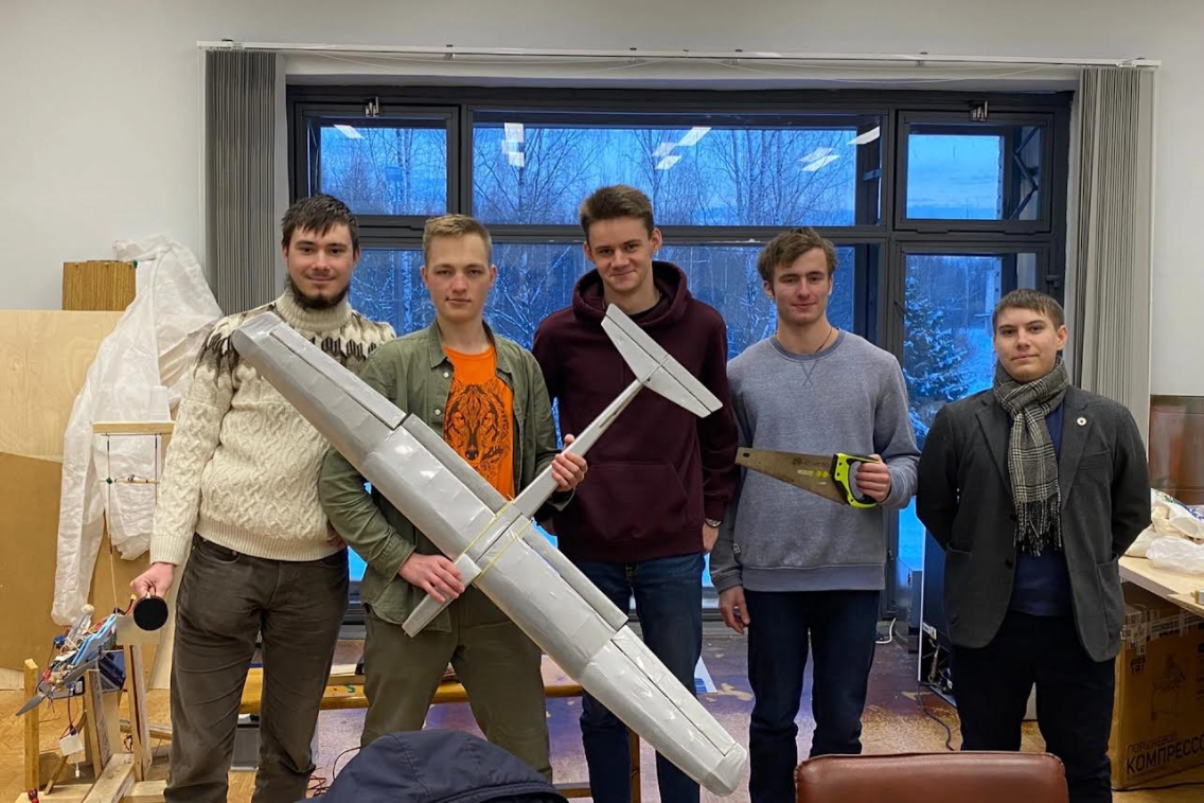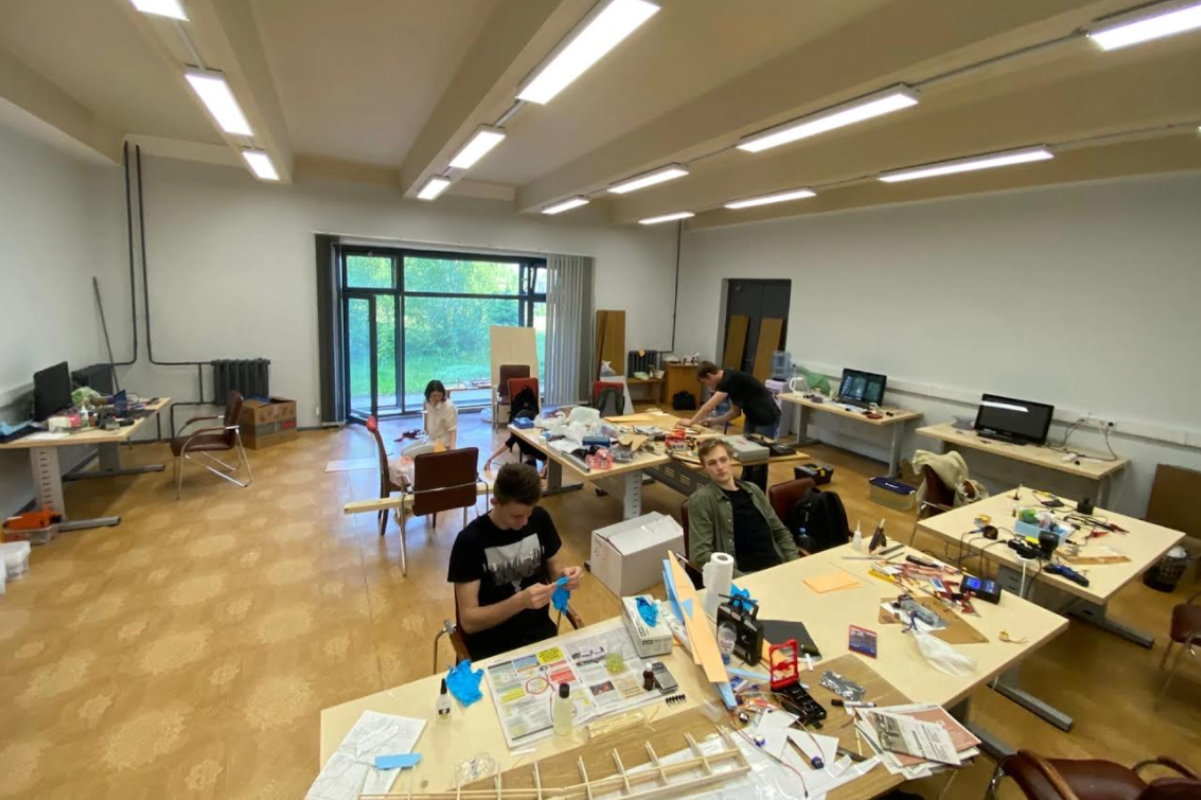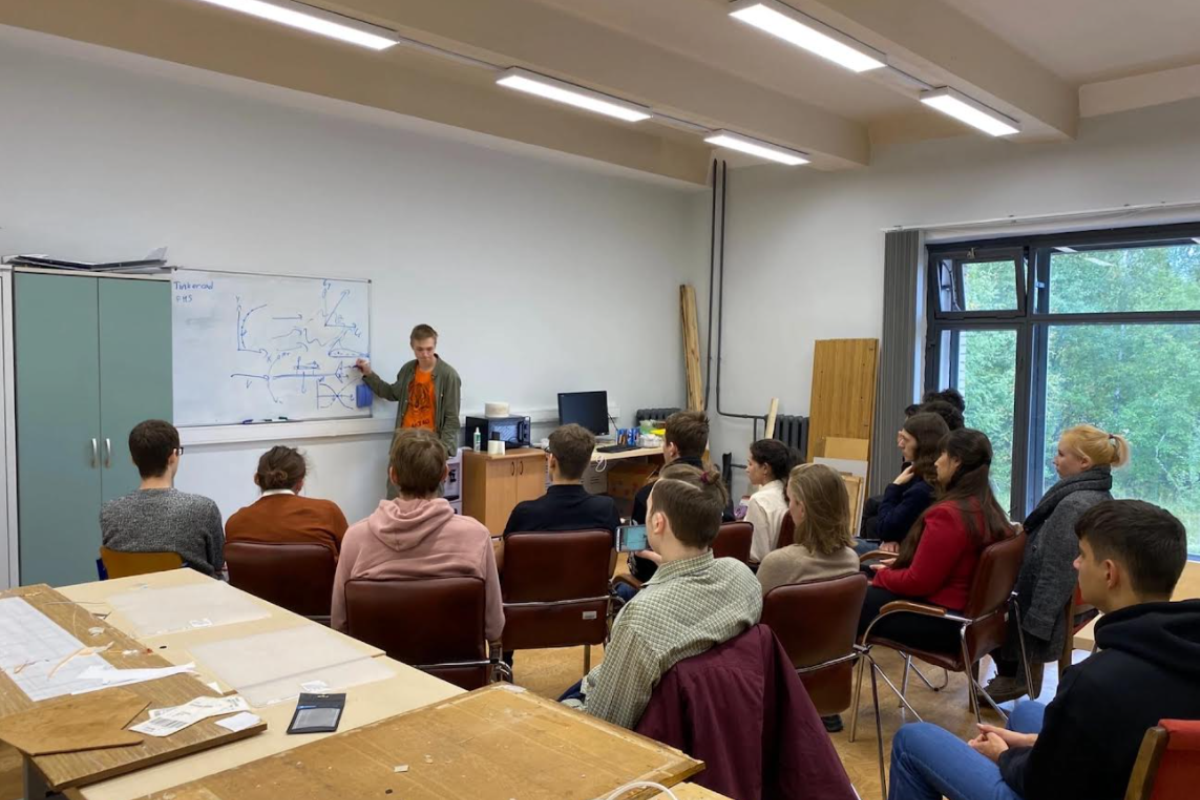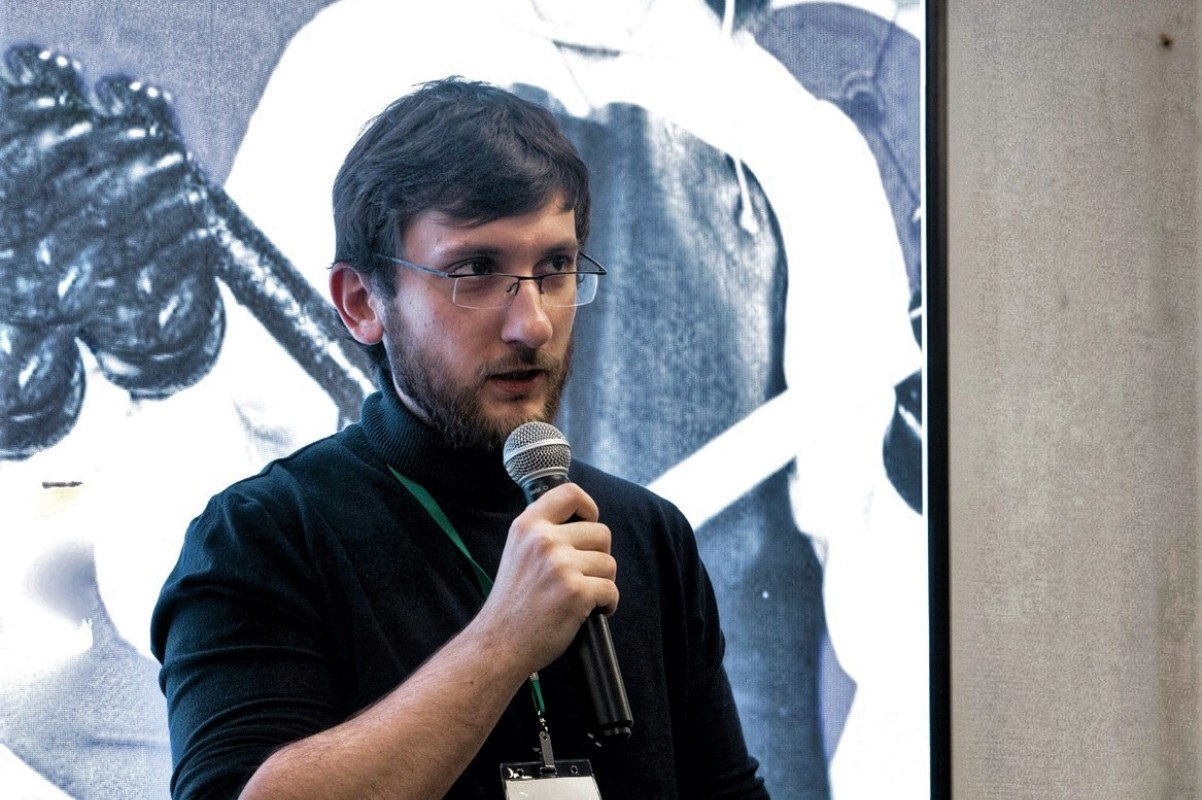Valentin Ershov, Head of the Project Workshop at SPbU: ‘We are trying to avoid using the method of “scientific trials and errors” by putting all “rakes” in one corner’
In 2018, St Petersburg University opened the Project Workshop. It is a student association that is set to encourage young entrepreneurs to bring to life their projects, look for internship opportunities, and participate in start-up contests. Valentin Ershov, Head of the Project Workshop at St Petersburg University, spoke about how the Project Workshop was opened, what its scope is, and what success its participants have reached.
What were the reasons behind creating the club to support start-up projects? Who helped realise this idea?
The students were extremely keen on developing projects and pursuing non-degree programmes. Initially, what we came up with was not something new. We just institutionalised what many people at the University, both academic and administrative staff and students, had been long thriving to do. In my opinion, what we really achieved was that we managed to bring to life this impulse. As a result, at the beginning of the 2018/19 academic year, we announced that the Project Workshop was officially opened.
Developing the Project Workshop was significantly assisted by the Director of the Institute of Chemistry Irina Balova and Vice-Rector for Research Sergey Mikushev, who was at that time the Director of the Research Park at St Petersburg University. To set the ball rolling, we needed at least material base and premises, which were provided by the Resource Centre for Applied Aerodynamics at the Research Park at St Petersburg University. Today it is called the Centre for Extreme States of Materials and Constructions.
Additionally, funds for purchasing necessary equipment in the amount of 300,000 roubles were allocated by the Endowment Fund at St Petersburg University. Who did help us was Evgenii Pen, the-then Executive Director and one of the key ideologists of the St Petersburg University Start-Up contest. Some of the finalists of this contest became the first generation of activists and organisers of the Project Workshop.
Aleksey Smirnov, Deputy Director of the Physics Educational Centre at the Research Park, is still helping with repairs and solving many issues, including compiling purchasing lists and obtaining keys to name but a few. We are obliged to the Director of the Business Incubator at St Petersburg University Aleksandr Sergeev for assisting us in dealing with the issues relating to organising the Project Workshop. Later, Tatiana Syrchikova, Deputy Head of the Department for Youth Affairs in the areas of ‘Mathematics’, ‘Mechanics’, ‘Control Processes’, ‘Physics’ and ‘Chemistry’, also assisted us.
The initiative was actively supported by students from the St Petersburg University’s Student Council at the Faculty of Physics; the Student Scientific Society at the Institute of Chemistry; the Student Scientific Society at the Faculty of Applied Mathematics and Control Processes; and their group of industrial robotics.
Judging by how many people I have mentioned, the idea of the Project Workshop had long been in the air.
Do you purposefully attract new people to the Project Workshop or do they just join you?
Both are correct. We have a purpose-built programme to attract students to the clubs, which are non-degree programmes in such areas as 3D printing, data science, technological entrepreneurship.
Additionally, we hold events to spread information through student channels. Word of mouth is also an effective tool. We are trying to keep in touch with almost all students who have worked with us. By doing so, we are building up a community. This ensures that new people constantly join us and make important business contacts here.
How can the Project Workshop help St Petersburg University students?
We can provide help in building an educational or career path. Students can make informed decisions when: choosing a research supervisor; finding points of growth in their fields; thinking about a scientific or business career to meet the requirements of the today’s market; selecting an internship at a company or the University; and helping them throughout the internship.
We can also equip them with knowledge and expertise in advanced areas, improve entrepreneurial and engineering skills at case-championships, hackathons, engineering landings and meetings with representatives of companies, research teams, foundations, and start-ups. Additionally, we engage students in our projects and help them develop their own technological or social projects. We can help: build up a team of like-minded people; analyse the market; communicate with experts from the relevant fields; write and test a business plan; apply for grants and competitions; and perform in front of jury members or investors to name but a few.
The scope of the Project Workshop is within the areas of the National Technology Initiative. What are these areas and how are they developed?
The National Technology Initiative is among the key institutions that shape technological development of Russia. The areas are determined by foresights, i.e. a sophisticated brainstorming format used to create complex strategies to be followed in future. The key difference, in our opinion, is that ‘catch-up modernisation’ is not what the National Technology Initiative is aimed at.
First, our concept is that if we have lost the race in certain industries, it is unreasonable to try to catch up with the train that has already gone. Rather, what we need to do is to: concentrate on new technological markets that have a potential to develop; determine the areas with significant technological resources and high-calibre personnel; and determine the areas where our level corresponds to the global standards or even surpass them. Second, if the Russian economy is only a few percent of the global economy, it is necessary to look for a market for high-tech products abroad, taking into account the political situation as some markets can be closed or difficult to access.
How do you organise the work with student projects? Do you provide support from idea to implementation or provide assistance in some ‘points’?
The experience of our students in project competitions and feedback from experts from various technology accelerators have showed that most projects are unfortunately almost always of poor quality. This may be due to the fact that projects are just of poor quality or organisers of start-up contests do not pay enough attention to their participants.
Yet if we try to gain a better understanding of the situation, it turns out that the problem is not in people, but in the fact that they have not been prepared well. They do not know how to: independently analyse and look for problems that are really important for society; generate ideas correctly; turn them into projects; build up a team; extract resources; and plan the development of the project to name but a few. These are the basic skills you need to acquire to engage in complex intellectual and technical activities. Following these assumptions, we have developed our own approach. We are trying to protect students from using the method of ‘scientific trials and errors’ and putting all ‘rakes’ in one corner.
Two key principles of our work
First, if you have learned something new, teach another person to learn it too. Second, if something works out well, there is no need to duplicate it. We either improve existing institutions or create new ones.
I would not use the word ‘or’: we assist students both from idea to implementation and in some ‘points’. It all depends on what the problem is.
It seems that your main areas of work lie in the field of technical and natural sciences. Will there be some room for humanitarians in the Project Workshop?
The fact that our scope is within the field of technical and natural sciences is a historical coincidence. Really large-scale and complex projects that have a great effect cannot but be social or humanitarian.
What is our ultimate goal? Money? Far from being so. If money was everything we aimed to achieve, we would go into finance and more profitable industries. We strive to reduce human suffering and improve our life. We have many projects related to improving education, building important high-tech industries, such as medicine and energy, which require understanding and awareness of social problems. Humanitarians are needed here to contemplate and comprehend.
Among the most important projects for us is the task of reproducing the right public institutions to ensure we can preserve scientific schools. As scientists and technologists, we know how to select such schools, but we do not fully understand how to preserve and reproduce the most significant and effective systems. This is where we definitely need psychologists, sociologists, and managers. Additionally, we have projects to create computer games on historical themes, themes of space, the nuclear industry. This is where historians and economists will be needed.
At last but not at least: we urgently need PR specialists: everyone who can promote us. There are many projects and ideas, but we just do not have time to write texts. Additionally, we need economists, lawyers, and managers.
How successful are you in developing student projects?
It depends on what you mean by being successful. Sometimes a single project is not as important as the experience and lessons learned by the participants in this project. There are students who, with rather mixed success, started with the SPbU Start-Up contest, then won UMNIKs for their projects, and now they work with and manage large-scale projects in corporations like Rosatom.
The same question can be addressed not only to the Project Workshop, but to the education system in general. The main criterion for success will not be how many square metres the halls of residence are or the citation of scientists, but what graduates eventually have become. Starting from this assumption, we can formulate specific tasks to work on. Through organising a range of career guidance events, we are looking for ways to motivate schoolchildren to study, show them the horizons for the development of their future professional life, and calculate the development trajectory. We teach students how to properly pass the third-year crisis and decide on career goals and then achieve them. If you look from this point of view, we manage to successfully develop student projects.
How was your 2021 in numbers? How many people joined you? How many projects were implemented? What funding did you manage to attract for the implementation of projects?
The year was pretty good. This year we won: six UMNIKs, with a total of 16 UMNIKs submitted. They all became finalists of the competition. Four more projects were recommended for funding, but no final results have yet been announced. Each project has received 500,000 roubles. Thus, we have received 3 million roubles and we are still waiting for 2 million roubles.
Additionally, our idea with clubs and additional lectures was supported by the Federal Agency for Youth Affairs (Rosmolodyozh). They allocated an amount of 2 million roubles. Five teams out of the eight team finalists of the 2021 SPbU Start-Up contest were from the Project Workshop. One of the teams received a grant in the amount of 700,000 roubles to develop a small innovative enterprise at St Petersburg University and took second place. To sum up, in 2021 we attracted 5.7 million roubles.
As for the people who joined us, we no longer keep records. There are more than 1,500 people on our Stepik course on Python programming, and about 650 people on the technology entrepreneurship course. Thus, more than 2,000 people.
As for the implementation of the projects: high-tech projects need a long time to develop. It takes three to five years from the start to produce the first product. Now some of our projects are close to this stage: for example, a bioprinter or a machine for sharpening skates for hockey players.
How is the training of those who want to develop their start-up projects organised today? Does the Project Workshop create new opportunities for this?
As I have mentioned, we have created an online project management course that is available to everyone. First, a large number of young people are interested in developing their own start-ups. Second, there is a huge shortage of personnel and a shortage of specialists who can organise such projects, manage them, and take the initiative into their own hands. This shortage is also typical for corporations.
We are planning to take part in the landings of the National Technology Initiative Kruzhok Movement to small towns and rural areas, where there is often not enough equipment or qualified teachers. The purpose of the landings is to train students on-site in a short time, help them get a material base, come up with a ‘business model’ to develop so that they can become quite autonomous. This initiative is of interest to both corporations and the National Technology Initiative, where they can additionally train mentors. This is by no means a replacement of education. It is a tool to obtain necessary skills and expertise.
There are also plans to hold popular science events in the science format slam, in a slightly modified form. The idea is to organise a discussion between experts in their fields to encourage them to discuss controversial issues with no clear answers or conclusions. If we have a good host, it will be fascinating.
Additionally, by the end of May, we are to continue to implement the Rosmolodyozh project on the Kruzhok Movement. By doing so, we will cooperate with the OLIMP student association and conduct classes in a wide range of areas: from IT and robotics to the humanities and social sciences. We also give regular lectures, for example, for fourth-year mathematics students at St Petersburg University. In other cases, we help to make academic programmes more ‘project-oriented’, as at the D. Mendeleev University of Chemical Technology of Russia.
In a nutshell, we want to work out various career paths. To this end, we cover a variety of areas: from schools to corporations.
Could you please tell us about the successes of your students? Is there a case that you want to talk about in detail?
There are lots of them. I will tell about the most memorable ones. A girl came to our Project Workshop who wanted to drastically change her area of study: from a linguist and a translator to an entrepreneur, marketer, and project manager. Three years later, she became a project manager in a company that brings start-ups to the market. As a result, the Project Workshop have more orders, can provide opportunities for employment for students and useful contacts. The second case is that our student is now the project manager at the State Atomic Energy Corporation ‘Rosatom’, which is associated with production in the radiopharmaceutical industry. The third case is our colleague, who also decided to become an economist and a manager after receiving a bachelor’s degree from the Institute of Chemistry. Now he is among the best second-year doctoral students at the Graduate School of Management, receives a student allowance of 30,000 roubles from the Graduate School of Management, and will defend his PhD at a Norwegian university as he could won a scholarship for a year.
When it comes to those who are younger, I would like to mention bachelor’s students: chemists and physicists. Their professional level is on a par with those who in 10-15 years will perhaps create new scientific schools. Our main task is to discover such students, to prevent them from choosing an ordinary path, to show them that what they are striving for is possible.
The material was prepared with the participation of students from St Petersburg University.





